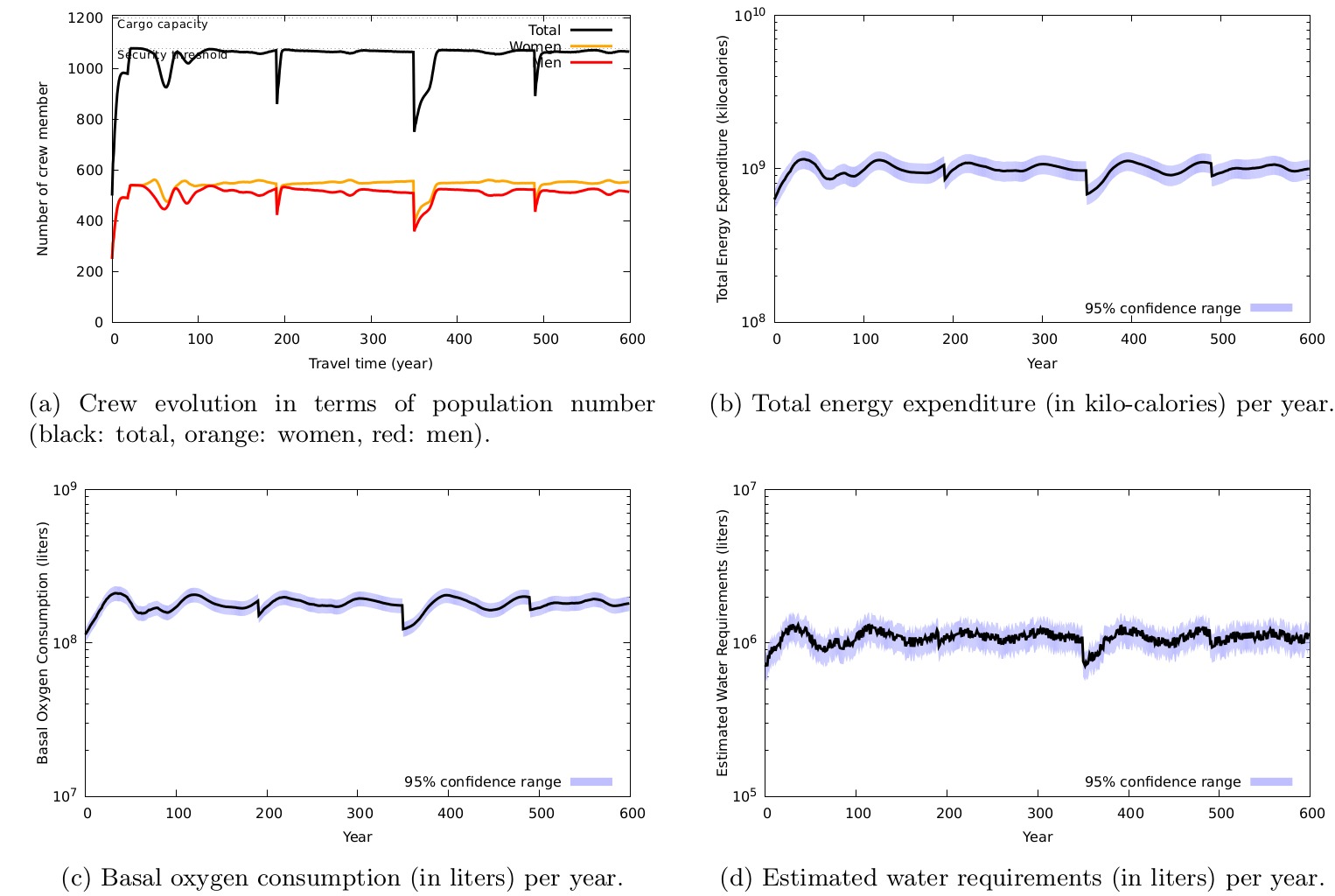Dr. Frédéric MARIN
Astronomical Observatory of Strasbourg
University of Strasbourg, CNRS, UMR 7550
11 rue de l'université
67000 Strasbourg
FRANCE
The HERITAGE project
In 2017, I created a cross-disciplinary project called HERITAGE. I developed an agent-based, Monte Carlo code to simulate the demographic and genetic variations of a multi-generational population in the context of size-restricted environments. The primary goal of HERITAGE was to investigate long-duration space travels using a rigorous methodology. The code, now at the forefront of the discipline, includes ethnographic, demographic, anthropometric, genetic, medical and Mir/ISS-based astronautic data, and follows the complex biological interactions of millions of individuals in resource-limited environments.
Determining the optimal crew size and composition, the architecture of the spaceship and the amounts of food, water and breathable gases required to keep the crew alive are essentials steps in the preparation of any multi-generational mission, affecting the resources and budget required for such an endeavour but also with implications for sociological, ethical and political factors. Furthermore, these elements are essential in examining the creation of any self-sustaining colony (not only humans establishing planetary settlements), but also with more immediate impacts : for example, managing the genetic health of endangered species or resource allocation in restrictive environments.

Digital rendering of a Stanford torus (4ever.eu).
Publications
3 papers have been published in the Journal of the British Interplanetary Society (JBIS). Our results have seen extensive media coverage: BBC Newsday radio talks (by Julian Keane), Universe Today (by Matthew Williams), New Scientist (by Adam Mann), The Conversation (by Aline Richard Zivohlava), Inquisitr (by Kristine Moore), Die Zeit (by Stefan Schmitt), etc. Many seminars have been given to present the code, the objectives and the results to general and/or expert audiences, such as in front of the European Parliament in September 2019, Strasbourg.
3. Numerical constraints on the size of generation ships from total energy expenditure on board, annual food production and space farming techniques; Marin, F.; Beluffi, C.; Taylor, R.; and Grau, L.; 2018, JBIS, 71, 382;
2. Computing the minimal crew for a multi-generational space travel towards Proxima Centauri b; Marin, F.; and Beluffi, C.; 2018, JBIS, 71, 45;
1. HERITAGE: A Monte Carlo code to evaluate the viability of interstellar travels using a multi-generational crew; Marin, F.; 2017, JBIS, 70, 184;

HERITAGE results (demography, food consumption, water requirement and oxygen needs) for a 600 years-long interstellar travel under the conditions described in Marin & Beluffi (2020).
Join the HERITAGE project
Intersted to join the project? We welcome any expert likely to participate in improving the code and results thanks to their knowledge. In particular, we are looking for experts in human sciences to determine the impact of long-term intertsellar travel on the social, psychological, ethical, philosophical aspect, etc. of humans. Please note that the project is voluntary and we do not have access to university nor private funding.
-> contact: frederic.marin@astro.unistra.fr